Imagine a future where farming helps heal our planet. Let’s introduce you to an innovative farming method that enhances soil health, increases biodiversity, and reduces our carbon footprint. Our philosophy is simple: We are Nature-Growing. We grow business by growing nature.
As we face global challenges such as climate change and loss of biodiversity, adopting sustainable agricultural practices becomes more crucial than ever. Syntropic carbon farming is new and a unique farming method that strengthens biodiversity, reduces carbon emissions and even more important: It brings incentives to farmers to (re-)establish and nurture native nature.
But what is syntropic carbon farming and how does it affect the coffee farming industry? Read on to discover how we make a difference with syntropic carbon farming.
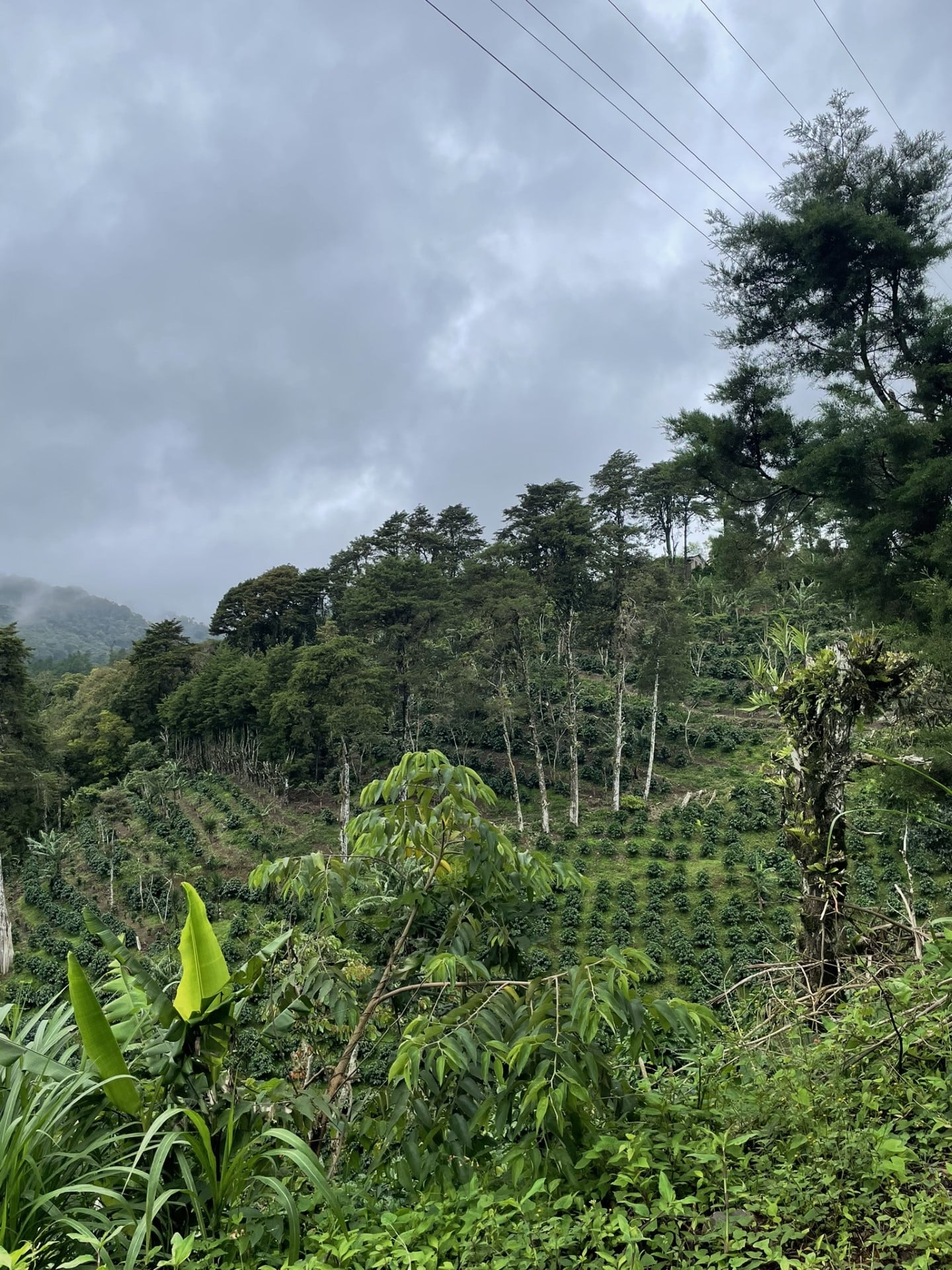
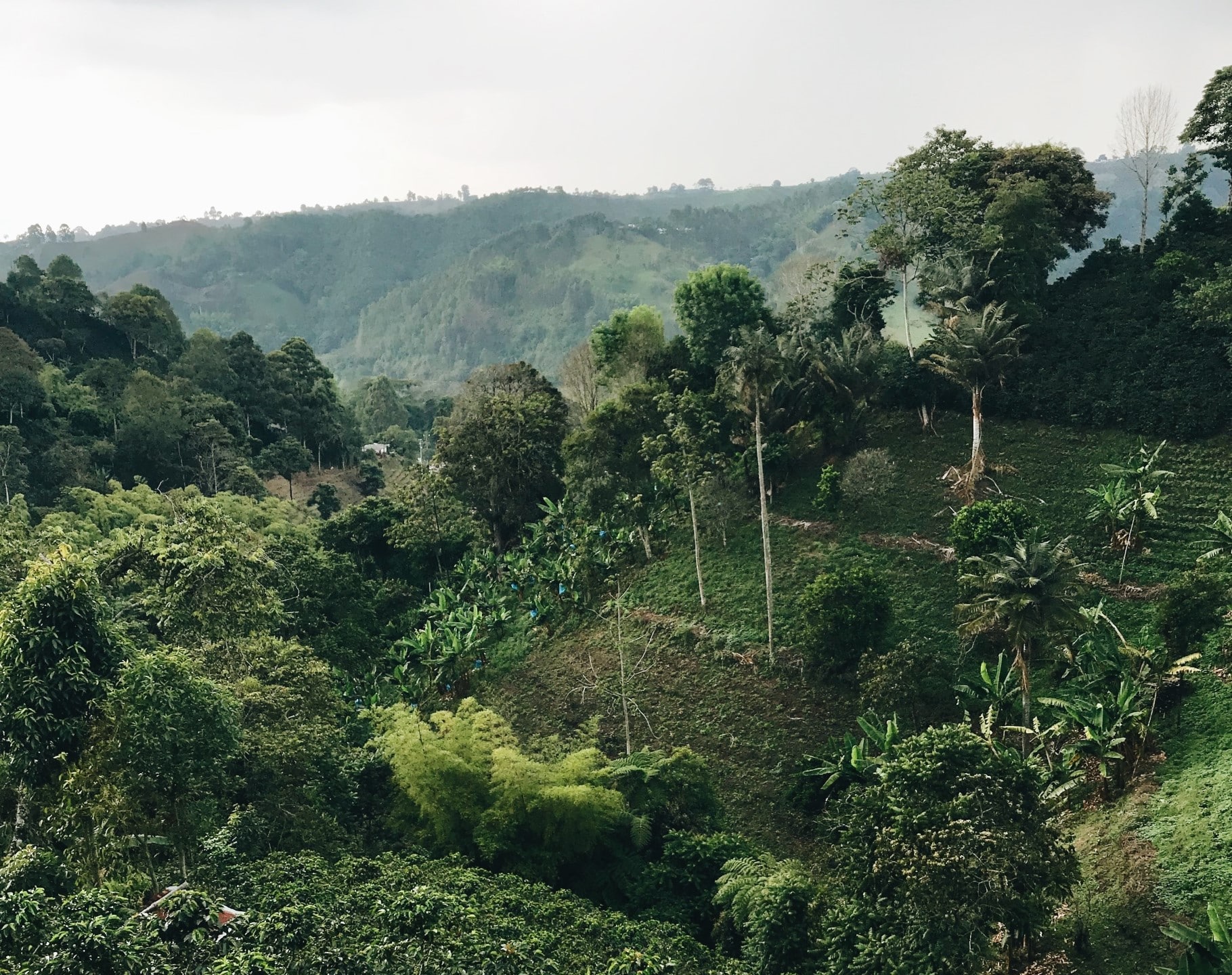
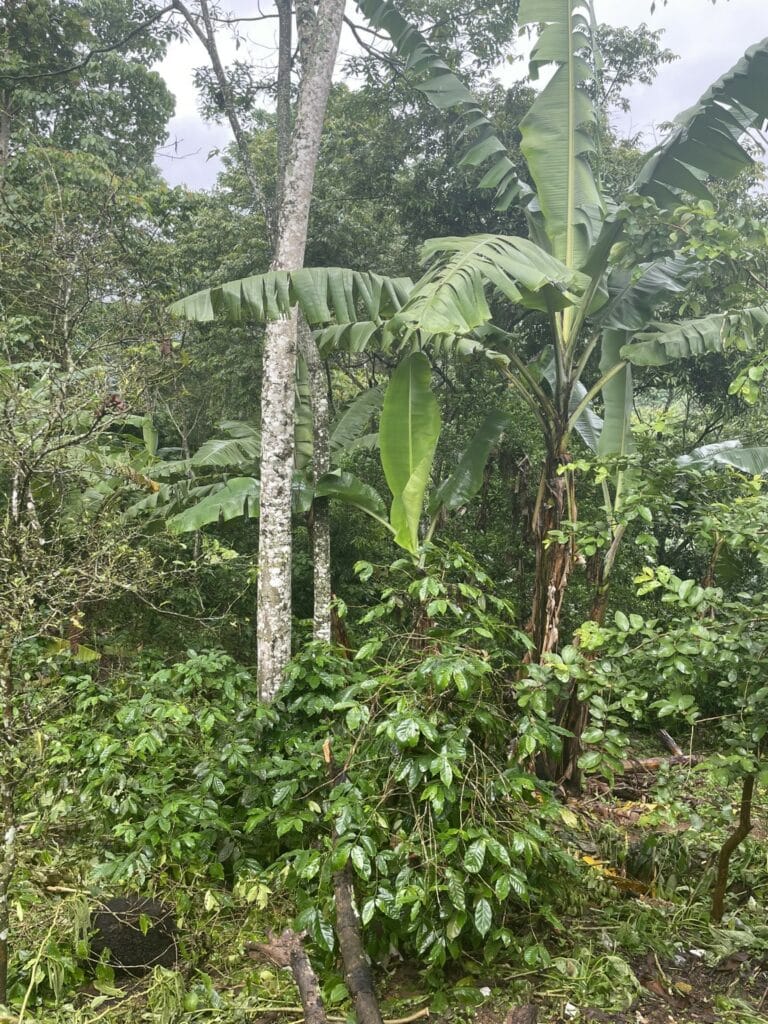
You may have heard about syntropic agroforestry – an agricultural method that emulates natural forest systems and integrates a diverse mix of plant species, trees, and crops to support our biodiversity.
Syntropic agroforestry integrates a diversity of plant species at different successional stages, where each species plays a role in the farm’s ecosystem. This diversity is crucial not only for resilience but also for the farm’s productivity and health. The principles of syntropy emphasize cooperation among plants to foster a balanced ecosystem that can sustain itself with minimal human intervention over time.
Additionally, this approach includes techniques such as alley cropping, where rows of trees are planted between rows of crops. These trees act as windbreaks and enhance soil fertility. Silvopasture combines tree planting with livestock grazing, providing shade and shelter for animals while their waste improves soil fertility.
Traditional agriculture is the most well-known farming method we use today. It has been developed to maximize profits, but this approach significantly impacts the environment such as:
Conventional agroforestry usually focuses on quick benefits like crop yields or wood production. It tends not to consider the different growth stages of plants or long-term sustainability. On the other hand, syntropic agroforestry to create a self-sustaining ecosystem that imitates natural forests. This approach builds a more robust ecosystem that supports a wide variety of life, enhances soil health, and maintains balance naturally.
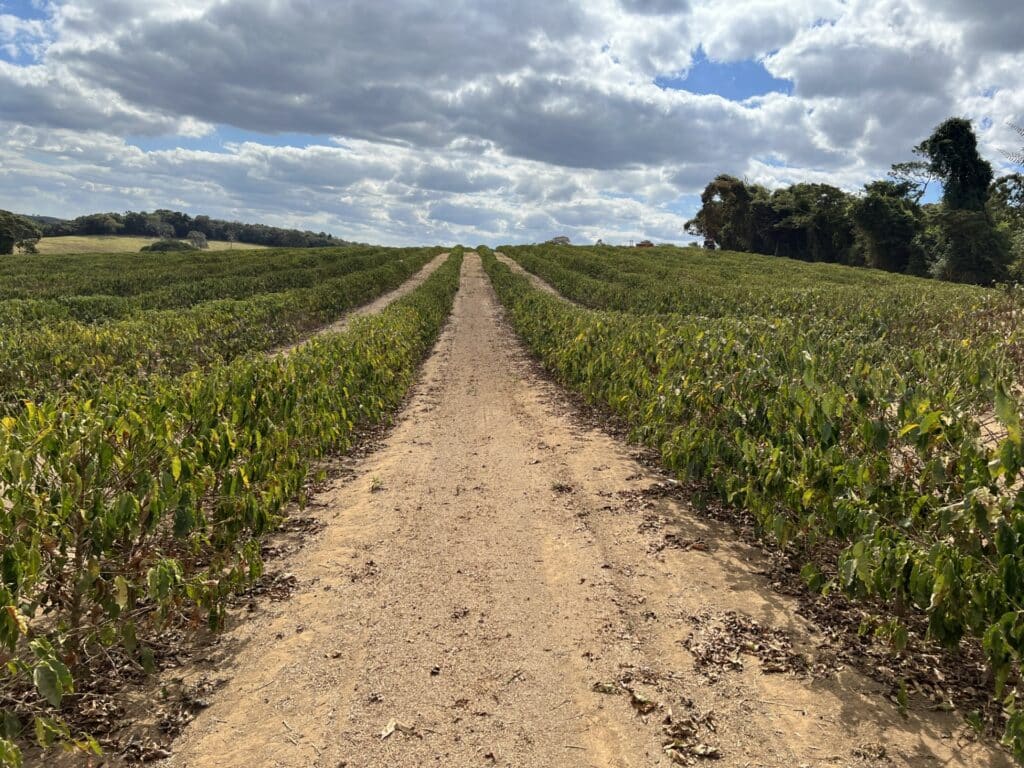
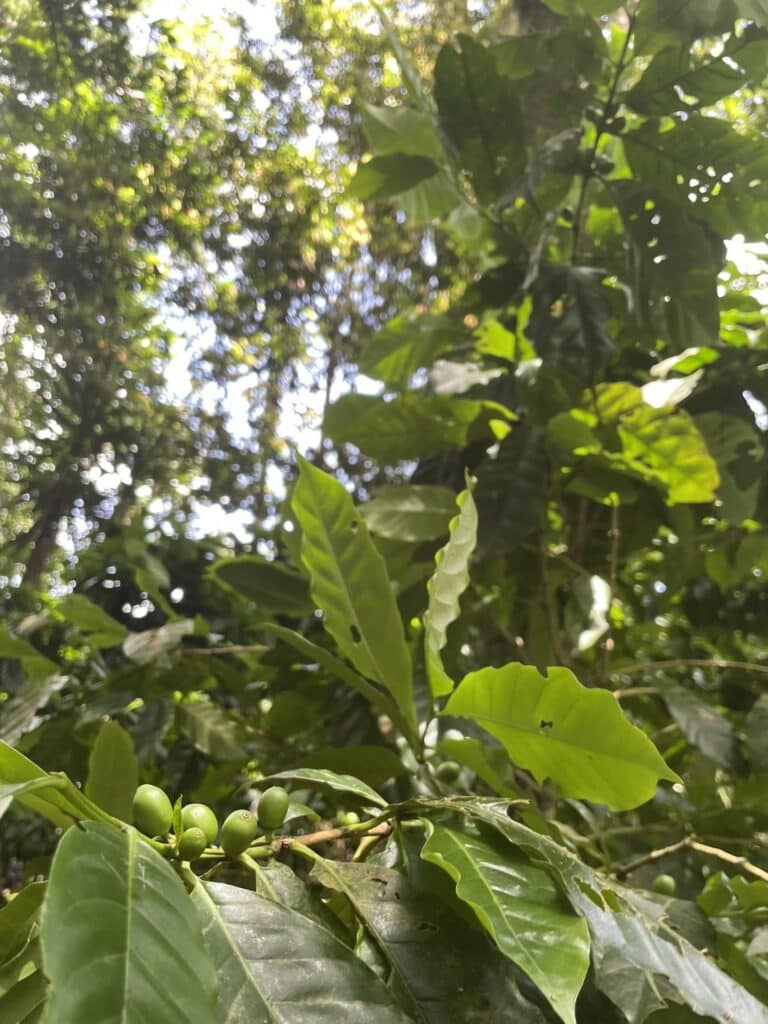
Even though syntropic agroforestry comes with a variety of benefits, we’ve taken this concept a step further with an even more beneficial method called ‘syntropic carbon farming‘. This unique agriculture combines the principles of syntropic agroforestry with the techniques of carbon farming. The result is a new agricultural method that not only maximizes carbon capture but also focuses on enhancing biodiversity.
5 benefits that make syntropic carbon farming a superior method for coffee farming:
1. Enhanced biodiversity
Syntropic farms thrive with a dynamic array of species, each contributing to a habitat that supports various forms of wildlife. This biodiversity fosters a resilient agricultural ecosystem that can adapt to changes and disturbances, promoting long-term ecological balance.
2. Improved soil health
This practice helps stabilize the soil, reduce erosion, and naturally cycle nutrients through the ecosystem. These benefits lead to significantly enhanced soil fertility, which in turn supports healthier and more robust plant growth.
3. Carbon sequestration
One of the most impactful benefits, syntropic carbon farming effectively captures carbon dioxide, storing it within the soil and biomass, thereby aiding in the mitigation of global warming.
4. Economic sustainability
By diversifying farm outputs, syntropic farming allows farmers to generate multiple streams of income. This diversification can include the sale of timber, fruits, nuts, plants, in addition to traditional crop yields.
5. Water management efficiency
The integrated planting strategies of syntropic carbon farming improve water retention. Trees and vegetation in these systems create a microclimate that maintains soil moisture and reduces water evaporation, leading to more efficient water use.
This approach not only challenges but also expands the traditional boundaries of sustainable agriculture. Adopting syntropic carbon farming means fostering a healthier planet and biodiversity, but also improving our coffee farming industry.
Our organization supports coffee farmers in transitioning to agroforestry systems and adopting climate-smart agricultural practices. To achieve this, we are actively seeking investors who are eager to contribute to a genuine transformation. The transition to syntropic agroforestry requires substantial initial investments in new tree plantations and infrastructure.
Investing in our projects not only demands financial backing but also offers substantial returns. Our investors gain access to detailed ESG reporting, measurable CO2 reduction, and other significant environmental impact, all of which can be leveraged in your sustainable work practices.
You can grow your business while growing nature with us! We’ve shown how syntropic carbon farming offers a variety of benefits both for our planet, coffee industry and your company. If you would like to learn more, you can read about our offerings. We assist businesses with a variety of solutions including nature and climate programs, ESG consultancy or you can book our CEO to your next event.
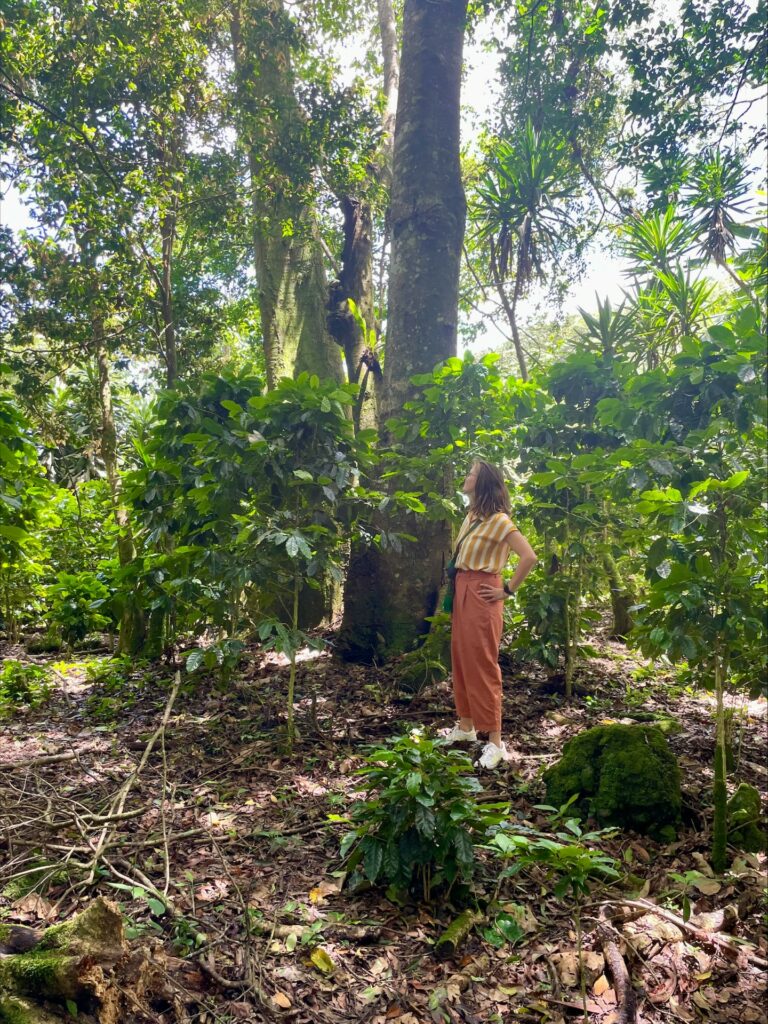
Be part of our mission and support the farmers who change coffee farming by growing nature.
| Cookie | Duration | Description |
|---|---|---|
| CookieLawInfoConsent | 1 year | CookieYes sets this cookie to record the default button state of the corresponding category and the status of CCPA. It works only in coordination with the primary cookie. |
| rc::a | never | This cookie is set by the Google recaptcha service to identify bots to protect the website against malicious spam attacks. |
| rc::c | session | This cookie is set by the Google recaptcha service to identify bots to protect the website against malicious spam attacks. |
| wpEmojiSettingsSupports | session | WordPress sets this cookie when a user interacts with emojis on a WordPress site. It helps determine if the user's browser can display emojis properly. |
| Cookie | Duration | Description |
|---|---|---|
| _ga | 1 year 1 month 4 days | Google Analytics sets this cookie to calculate visitor, session and campaign data and track site usage for the site's analytics report. The cookie stores information anonymously and assigns a randomly generated number to recognise unique visitors. |
| _ga_* | 1 year 1 month 4 days | Google Analytics sets this cookie to store and count page views. |
| Cookie | Duration | Description |
|---|---|---|
| CookieLawInfoConsent | 1 year | CookieYes sets this cookie to record the default button state of the corresponding category and the status of CCPA. It works only in coordination with the primary cookie. |
| rc::a | never | This cookie is set by the Google recaptcha service to identify bots to protect the website against malicious spam attacks. |
| rc::c | session | This cookie is set by the Google recaptcha service to identify bots to protect the website against malicious spam attacks. |
| wpEmojiSettingsSupports | session | WordPress sets this cookie when a user interacts with emojis on a WordPress site. It helps determine if the user's browser can display emojis properly. |
| Cookie | Duration | Description |
|---|---|---|
| cookielawinfo-checkbox-analysis | 1 year | Description is currently not available. |
| cookielawinfo-checkbox-necessary-cookies | 1 year | Description is currently not available. |
| Cookie | Duration | Description |
|---|---|---|
| _ga | 1 year 1 month 4 days | Google Analytics sets this cookie to calculate visitor, session and campaign data and track site usage for the site's analytics report. The cookie stores information anonymously and assigns a randomly generated number to recognise unique visitors. |
| _ga_* | 1 year 1 month 4 days | Google Analytics sets this cookie to store and count page views. |